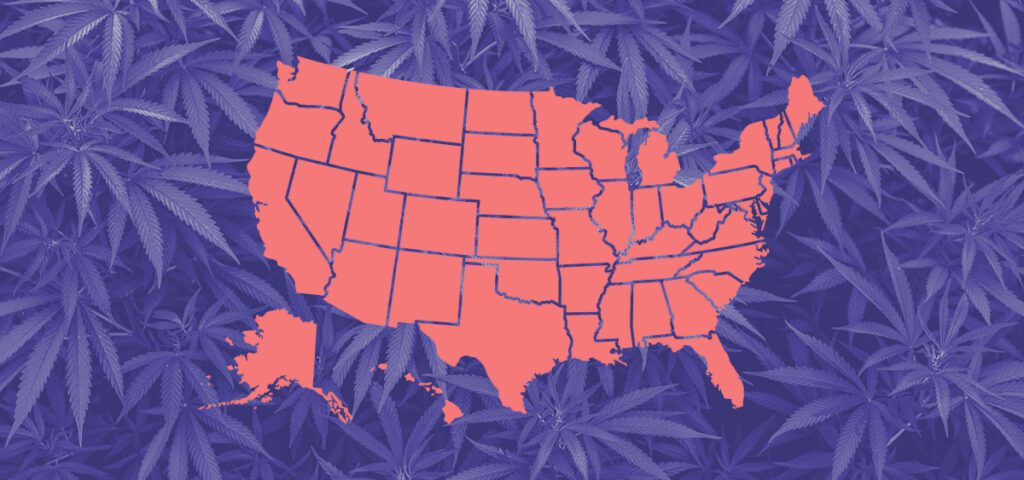The medical cannabis advocacy group Americans for Safe Access has released its annual “State of the States” report, which grades the states on their medical cannabis access options, and zero U.S. states or territories received an “A” from the organization.
Report: Zero Medical Cannabis Markets Are Fully Meeting Patients’ Needs

northern lights or marijuana blueberry color, Blue Dream Cannabis Strain
Full story continued below.
Advertisement
In its annual “State of the States” report, Americans for Safe Access (ASA) issued 13 failing grades to state medical cannabis programs, with Idaho and Nebraska both receiving a zero as the last two remaining states with no medical cannabis access.
In the report, ASA gave failing grades to Georgia, Idaho, Indiana, Kansas, Kentucky, Mississippi, Nebraska, North Carolina, South Carolina, Tennessee, Texas, Wisconsin, and Wyoming.
No state received an “A” grade, with Connecticut, Illinois, Maryland, Michigan, and Rhode Island earning B-pluses – the highest grade given on the ASA report card.
The ASA also issued grades for the medical cannabis programs of U.S. territories, including the Commonwealth of the Northern Marina Islands (D+), Guam (C-), Puerto Rico (D), and the Virgin Islands (D+).
“While we can acknowledge that we have come a long way since the first medical cannabis law passed in 1996, we must also recognize that none of the state laws adopted thus far can be considered ideal from a patient’s standpoint.” — ASA, “State of the States” 2022
The group notes that “even in states with full medical cannabis programs, each state differs greatly in how patients can access their medicine, where they can access it, or even what types of products they can access.” Adding that because medical cannabis remains prohibited federally “most state programs leave out millions of potential patients due to issues with affordability, patient rights, and civil protections, or product safety standardization.”
None of the states earned above a B-plus grade by the ASA because none “include the entire range of protections and rights that should be afforded to patients under the law, with some lagging far behind others.”
“Because of the differences and deficiencies in legislation and regulations in the states, patients argue that the laws do not function equitably and are often poorly designed, poorly implemented, or both,” the ASA says in the report. “Even well-organized programs can fail to deliver safe or legal access in states with laws that allow local governments to ban medical cannabis businesses from operating, leaving thousands of patients without the access state laws were intended to create.”
The ASA estimates the number of medical cannabis patients in the U.S. exceeds 6 million, an increase of about 1 million from its 2021 report.
Get daily news insights in your inbox. Subscribe
End